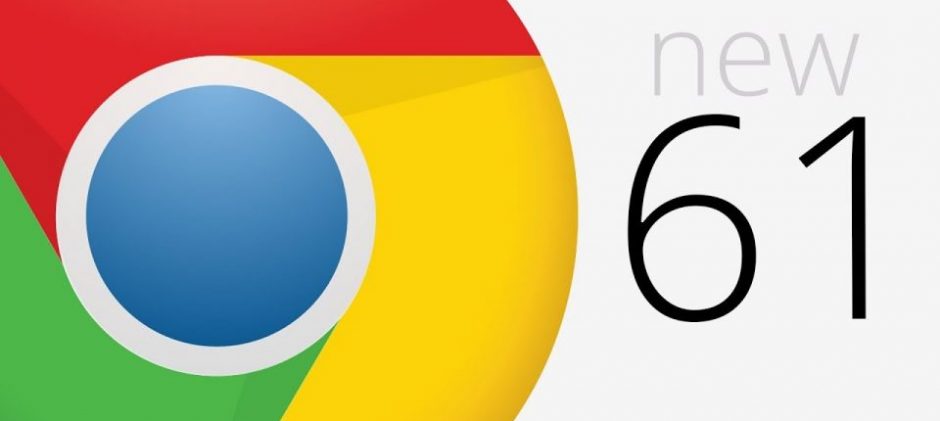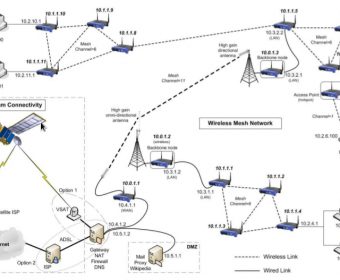- Homepage
- Technology
- Chrome 61 Arrives With Javascript Modules And Webusb Support
Chrome 61 Arrives With Javascript Modules And Webusb Support

Chrome 61 –Windows/Linux/Mac
Chrome 61 for Windows, Linux and Mac has been launched by Google and together with this Chrome 61 release, JavaScript modules as well as WebUSB support has been included besides other developer features. Users can now update to Chrome 61 the up-to-date version by utilising the built-in silent updater of the Chrome browser or download the Chrome 61 directly from google.com/chrome.
Having over one billion users, chrome is perhaps more than a browser and a main platform which web developers tend to consider. Owing to regular additions as well as changes, of Chrome, developers need to keep up to make sure that they are taking the benefit of all that is made available. Now with the provision of JavaScript modules natively in Chrome through the new <script type=module> element, Chrome 61 enables developers to assert the dependencies of a script. Modules have been well-known in third-party build tools that tend to utilise them in bundling only the essential scripts. Native support relates to browser that can draw granular dependencies in parallel, taking the benefit of caching, evading repetition through the page and making sure that the script tends to execute in the proper manner, without a build step. The following two posts have been recommended by Google for added information:
- ECMAScript modules in browsers
- ES6 Modules in Depth
Chrome 61:WebUSB API – User-Permitted USB Devices
With regards to JavaScript, Chrome 61 tends to upgrade the V8 JavaScript engine of the browser to version 6.1 and the developers are hoping for an enhancement in the performance as well as a binary size decrease. On the other hand the WebUSB API enables web apps to access user-permitted USB devices which enable all the functionality offered by hardware peripherals like the keyboard, mouse, and printers together with the gamepads while at the same time preserving the security agreements of the web. The other developer features included are:
- Network Information API is made accessible on desktop and as Android supporting sites in order to access the fundamental connection information of a device.
- Developers can specify scrolling smoothness through latest optional parameter in the prevailing Scroll APIs or with the scroll-behaviour – CSS property.
- The CSSOM View Smooth Scroll API tends to bring native smooth scrolling to the platform via the scroll-behaviour; smooth CSS property or by utilising the window.scrollTo() DOM scroll method, eradicating the necessity of implementing this behaviour with JavaScript.
- At the moment CSS colour values can be 8- and 4- digit hex colours of the format #RRGGBBAA and #RGBA.
- Sites could now access the virtual positions of the display content with Visual Viewport API of Chrome 61, revealing difficult functionality such as pinch-and-zoom in a much direct manner.
- Presently the Device RAM API is accessible revealing the extent of RAM on a device of the user to sites to augment total performance of a web application in Chrome 61 browser.
- While navigating from an installed web app to a site beyond the initial web app’s scope, the new site tends to mechanically load in a Custom Chrome Tab of Chrome 61.
- Chrome 61tends to mechanically expand video to full screen for video using native controls when user is inclined to rotate their device in an orientation which matches a video playing on the screen.
- Presently nextHopProtecol is available in Resource Timing and Navigation Timing, offering access to the network protocol utilised to make a resource.
- Sites now need embedded third-party content to implement a given Content Security Policy through the latest csp attribute on <iframe> elements.
- The DOMTokenList interface of Chrome 61 tends to support replace() to change with ease all similar tokens to an updated one like active to inactive on expiration.
- To access the attribute names list of an element, getAttributeNames() is presently supported giving the developers a more direct mechanism that tends to go via the attributes collection.
- Sites will now mechanically exit full screen in order to upsurge security if a JavaScript dialog tends to open in Chrome 61.
- Sites can now access an estimate for the disk space utilised by a given origin and quota in bytes through the new navigator storage estimate() function of the Storage API
- In order to improve the cache hit rate of the Google Chrome 61browser, URLSearchParams now supports sort() to grade all stored name-value pairs.
- The URLSearchParams constructor has been restructured in order to receive any object as a parameter rather than other URLSearchParams cases.
- To avert the usage of mis-issued certificates going overlooked, sites could utilised the latest Expect-CT HTTP header that would permit automated reporting and/or enforcement of Certificate Transparency needs.
- Google Chrome 61 will not decode frames for videos utilising Media source in the background tabs.
- Photo resolution, red eye reduction together with flash mode, in non-live camera settings can currently be retrieved with ImageCapture.getPhotSettings()
- Sites could also use the Clear-Site-Data header in order to delete their own client-side data like cookies, storage, service workers together with cache entries in Chrome 61.
Chrome 61- WoSign/StartCom Certificates
It is said that for this Chrome 61 release, Google has spent almost $23,000 in bug bounties. With regards to security, this release also tends to eliminate trust in WoSign and StartCom certificates. Google had unveiled in October 2016, its strategy for the process beginning with only trusting certificates dispensed earlier to October 21, 2016 in Chrome 56, limiting trust to whitelisted hostnames built on the Alexa Top 1 million and then decreasing the size of the whitelist over the course of many Chrome releases.


